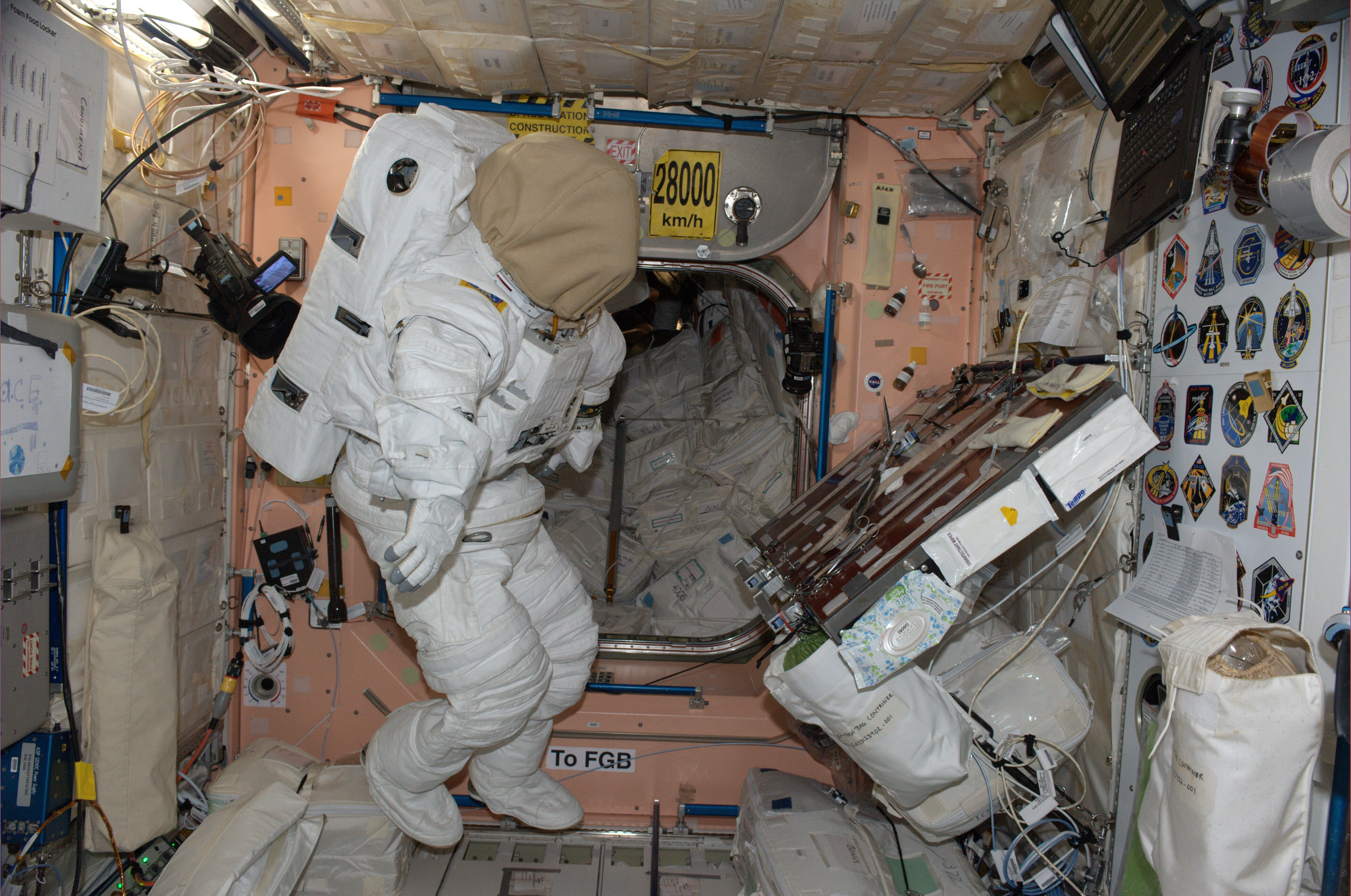Explosions in space: a Russian show of strength
Moscow is letting its opponents know ‘just how far it is willing to go to achieve its strategic objectives’

A free daily email with the biggest news stories of the day – and the best features from TheWeek.com
You are now subscribed
Your newsletter sign-up was successful
In the small hours of 15 November, the crew of the International Space Station (ISS) was woken by an emergency call from mission control in Houston, said Brandon Specktor on Space.com (New York). More than 1,500 pieces of debris were hurtling towards them at up to 17,500mph; they were to take cover in the capsules that had carried them to the ISS.
The debris was the remains of a Soviet-era spy satellite (known as Kosmos-1408) which had been blown up in a Russian missile test. Ultimately, it passed without damaging the ISS, but the furious response from Nasa – which accused Moscow of recklessly jeopardising the ISS and the lives of the seven astronauts on board (including two Russians) – was entirely justified.
Russia insisted the fragments didn’t pose any threat to space activity, yet “even a scrap of metal the size of a pea can become a potentially deadly missile” in space; Russia’s actions could have “obliterated” the ISS.
The Week
Escape your echo chamber. Get the facts behind the news, plus analysis from multiple perspectives.

Sign up for The Week's Free Newsletters
From our morning news briefing to a weekly Good News Newsletter, get the best of The Week delivered directly to your inbox.
From our morning news briefing to a weekly Good News Newsletter, get the best of The Week delivered directly to your inbox.
“Space junk” is hardly a new phenomenon, said Ramin Skibba in Wired (San Francisco). The Pentagon now tracks more than 27,000 pieces of debris, including dead spacecraft and used-up rocket boosters. The US is even working with private firms on technology that can pick up debris and drag it out of satellites’ paths.
China, the US and India have all conducted satellite-destroying missile tests like this one, said Valery Shiryaev in Novaya Gazeta (Moscow). But there’s a key difference: all of them targeted “objects in much lower orbits”, meaning most of the fragments “burnt up in the Earth’s atmosphere”. No one had destroyed satellites above the orbit of the permanently inhabited ISS, a step fraught with risk. “We are the first, alas.”
This incident shows that space is becoming increasingly militarised, said Etienne Meyer-Vacherand in Le Temps (Geneva). The current treaties governing space are hard to enforce, and the great powers are now preparing to “defend their interests beyond the Earth’s atmosphere”.
This show of strength in orbit was probably an example of “radical deterrence”, said Brandon J. Weichert in Asia Times (Hong Kong). Moscow recently clashed with Washington over its military build-up near Ukraine. It knows the US relies more heavily on satellites “than any other nation on Earth” – for civilian infrastructure and for its military, which could be left “impotent” if key satellites were disabled. In endangering the ISS so recklessly, Moscow is letting its opponents know “just how far it is willing to go to achieve its strategic objectives”.
A free daily email with the biggest news stories of the day – and the best features from TheWeek.com
-
 Political cartoons for February 15
Political cartoons for February 15Cartoons Sunday's political cartoons include political ventriloquism, Europe in the middle, and more
-
 The broken water companies failing England and Wales
The broken water companies failing England and WalesExplainer With rising bills, deteriorating river health and a lack of investment, regulators face an uphill battle to stabilise the industry
-
 A thrilling foodie city in northern Japan
A thrilling foodie city in northern JapanThe Week Recommends The food scene here is ‘unspoilt’ and ‘fun’
-
 Nasa’s new dark matter map
Nasa’s new dark matter mapUnder the Radar High-resolution images may help scientists understand the ‘gravitational scaffolding into which everything else falls and is built into galaxies’
-
 Moon dust has earthly elements thanks to a magnetic bridge
Moon dust has earthly elements thanks to a magnetic bridgeUnder the radar The substances could help supply a lunar base
-
 How Mars influences Earth’s climate
How Mars influences Earth’s climateThe explainer A pull in the right direction
-
 The ‘eclipse of the century’ is coming in 2027
The ‘eclipse of the century’ is coming in 2027Under the radar It will last for over 6 minutes
-
 NASA discovered ‘resilient’ microbes in its cleanrooms
NASA discovered ‘resilient’ microbes in its cleanroomsUnder the radar The bacteria could contaminate space
-
 Artemis II: back to the Moon
Artemis II: back to the MoonThe Explainer Four astronauts will soon be blasting off into deep space – the first to do so in half a century
-
 The mysterious origin of a lemon-shaped exoplanet
The mysterious origin of a lemon-shaped exoplanetUnder the radar It may be made from a former star
-
 The 5 biggest astronomy stories of 2025
The 5 biggest astronomy stories of 2025In the spotlight From moons, to comets, to pop stars in orbit